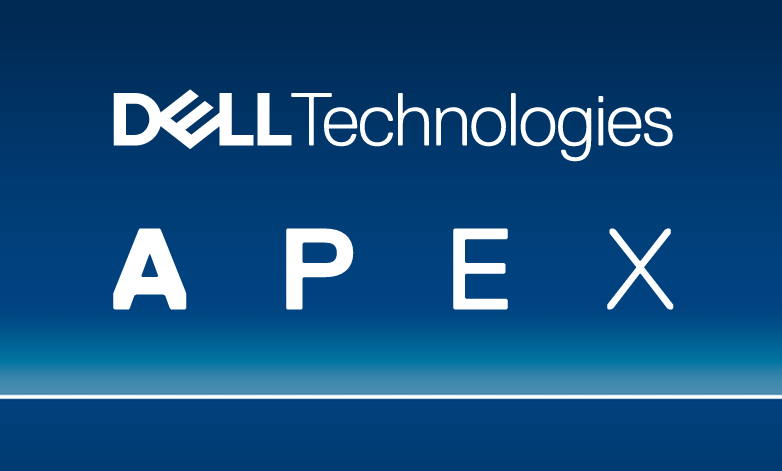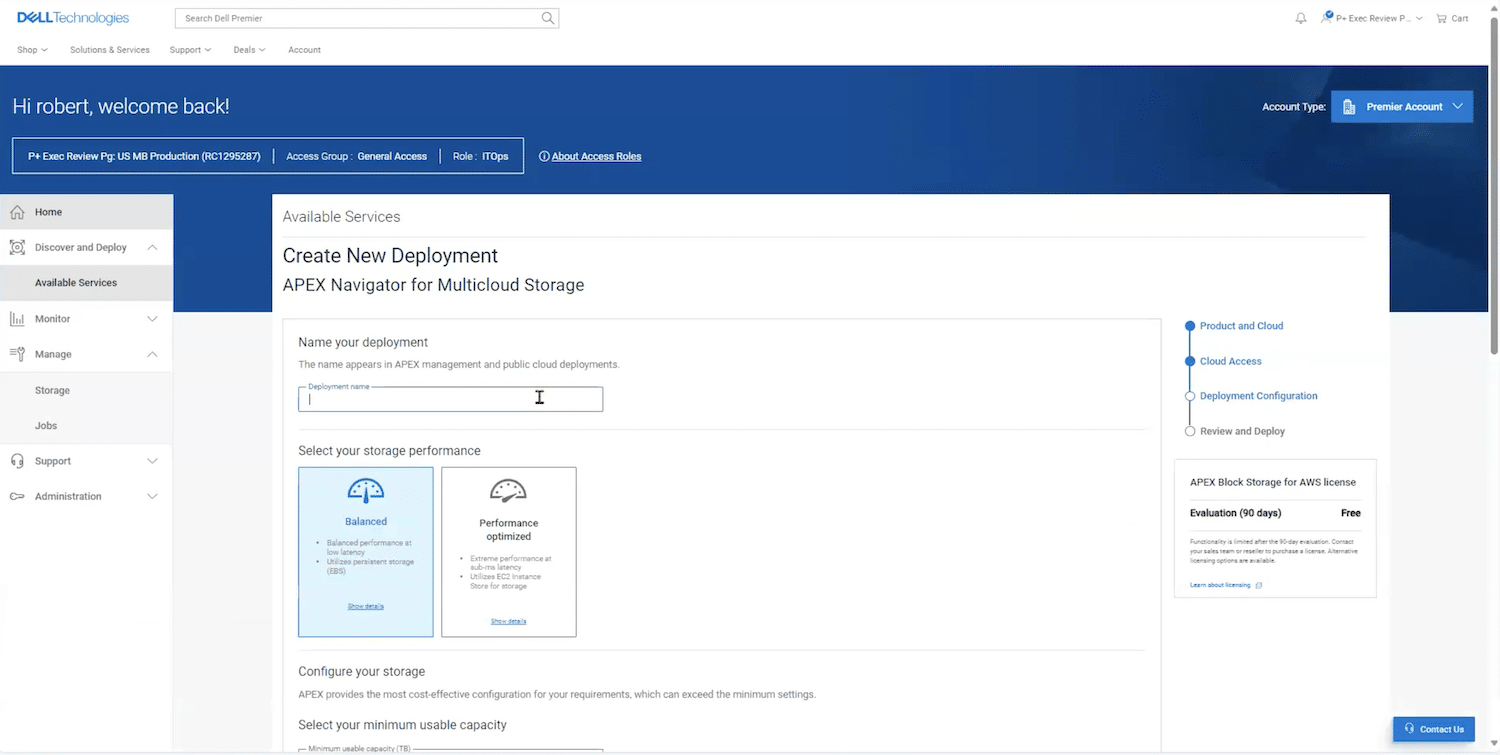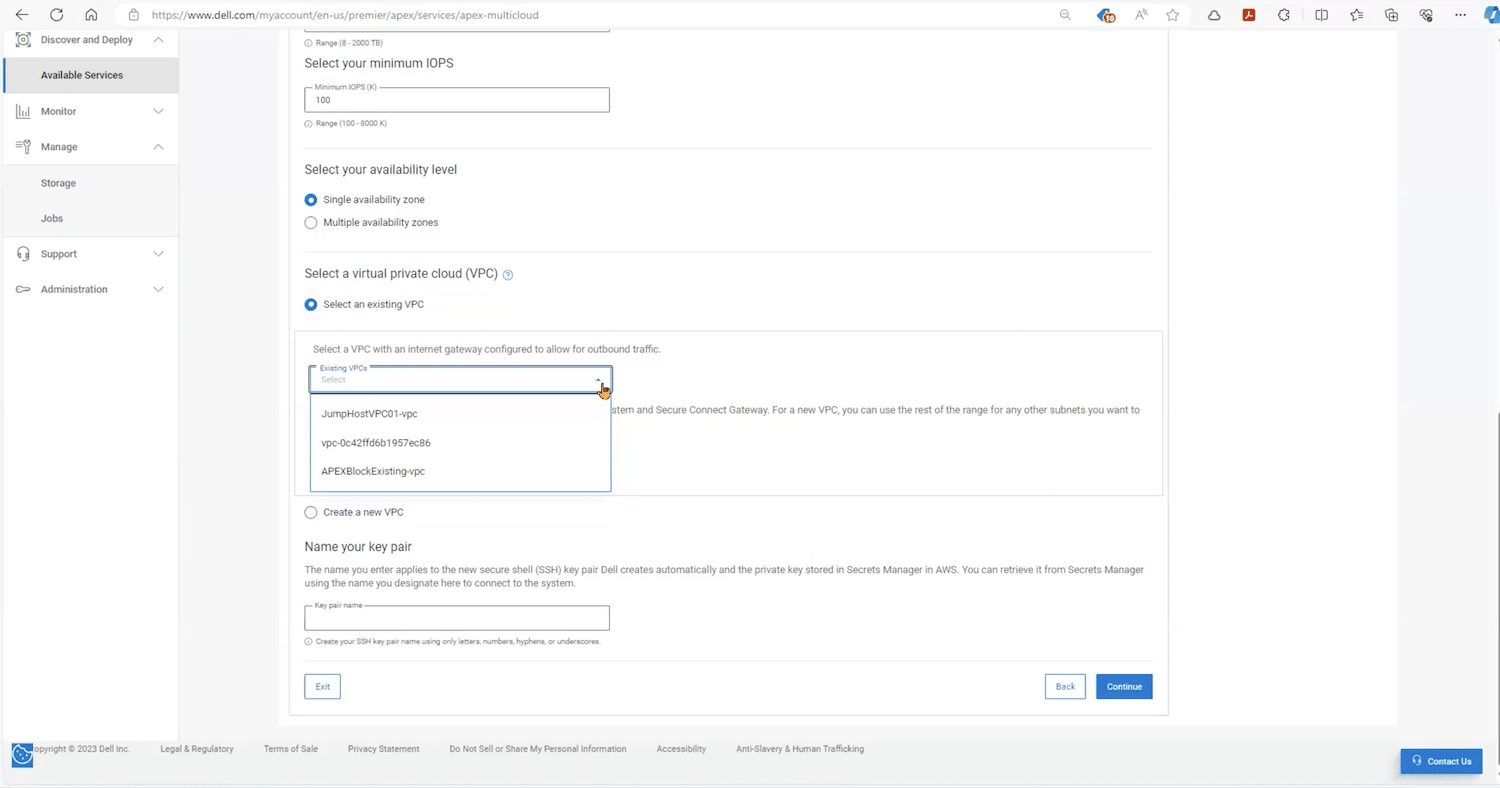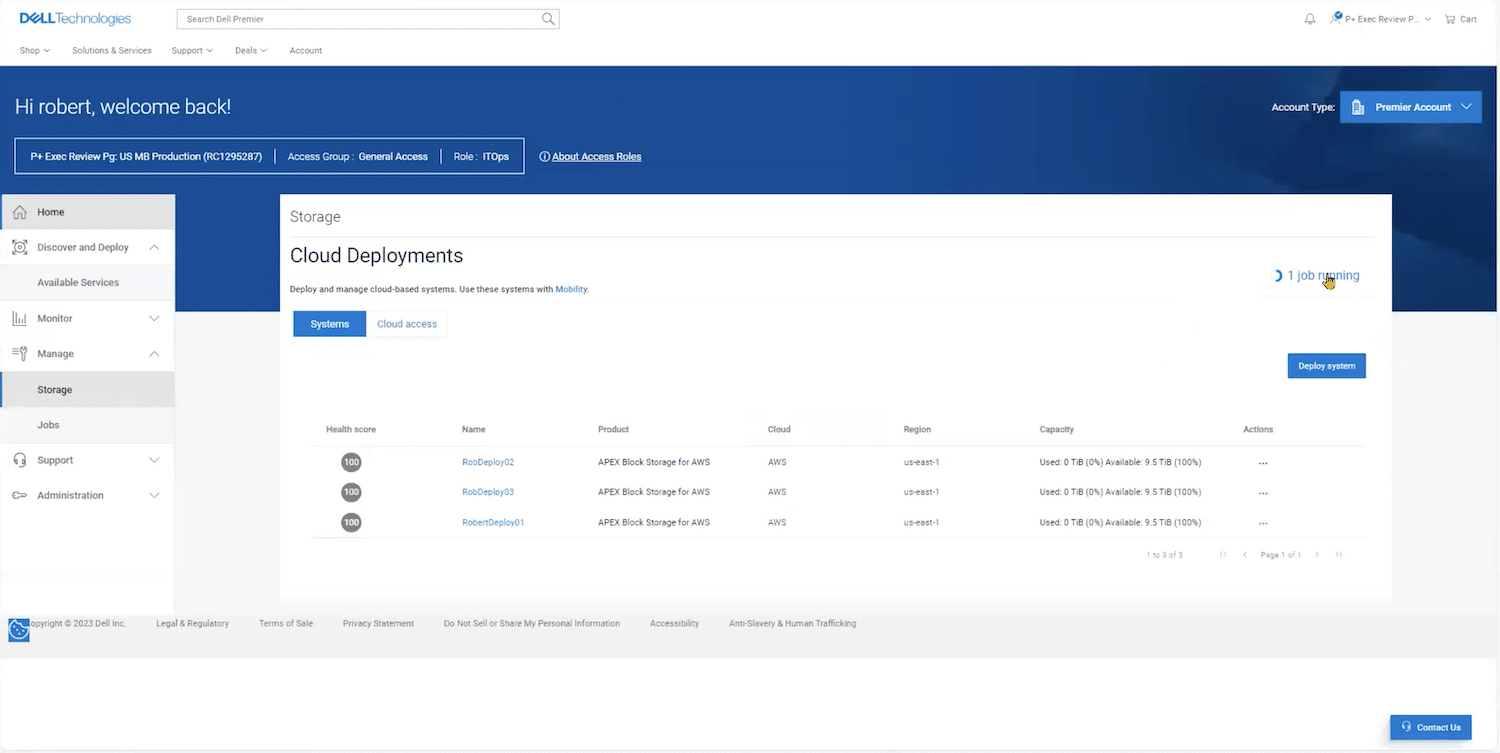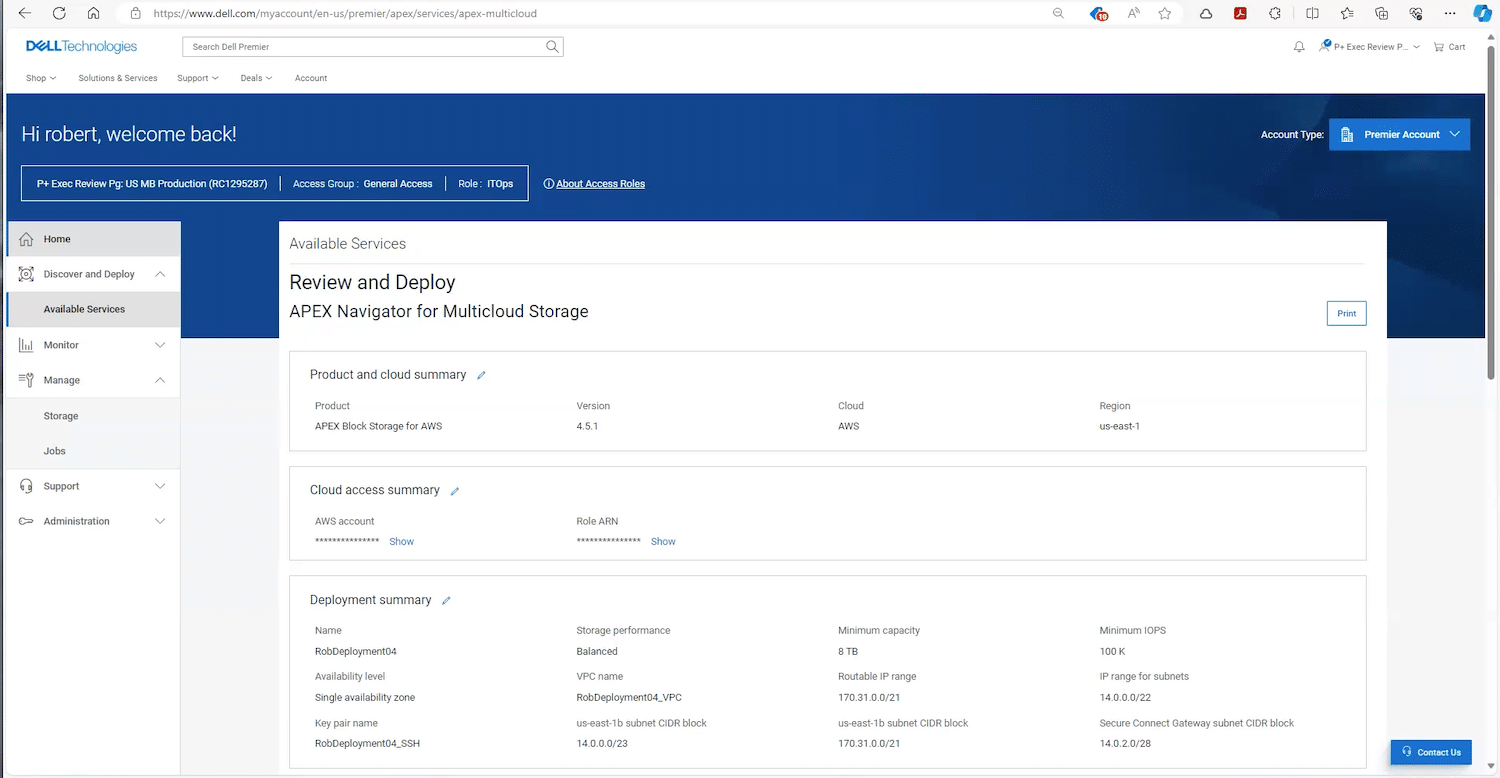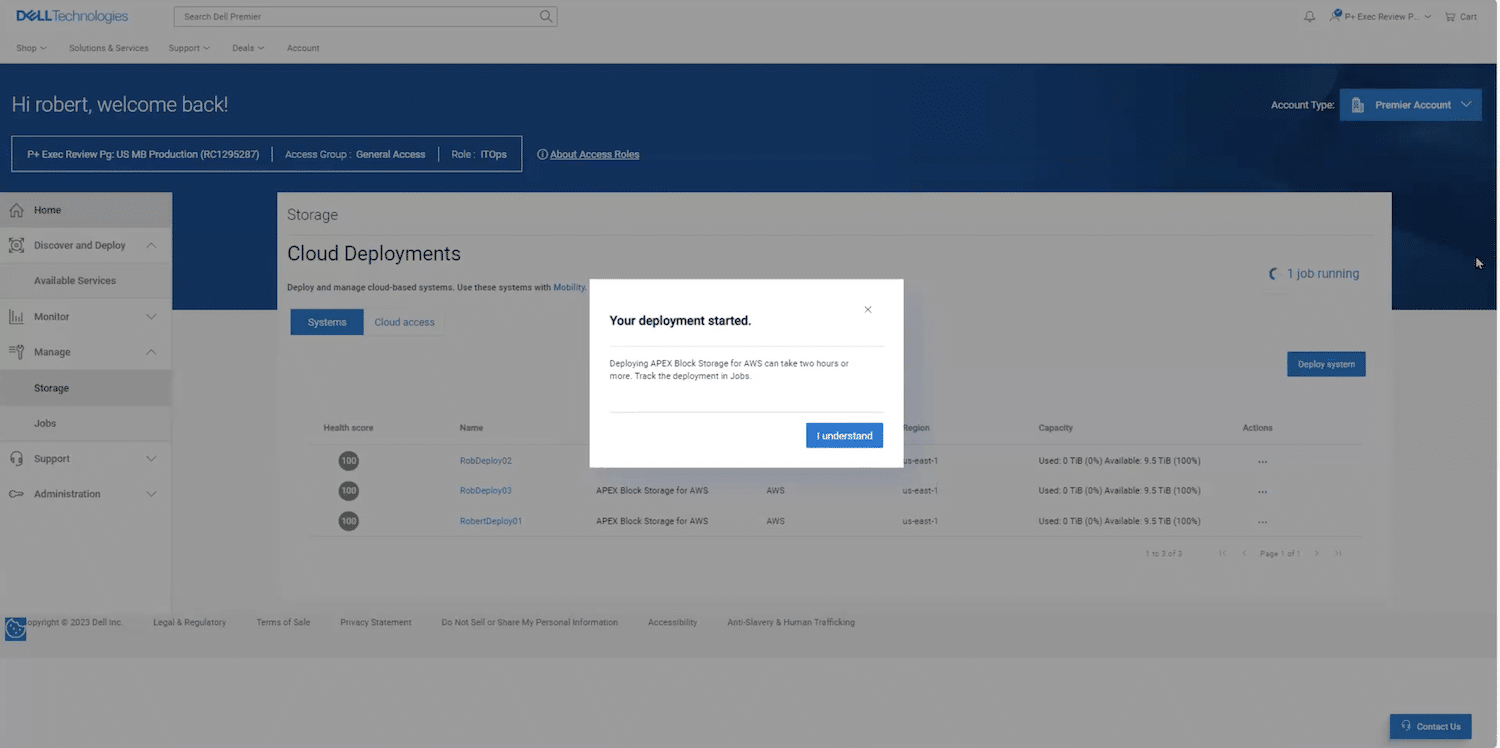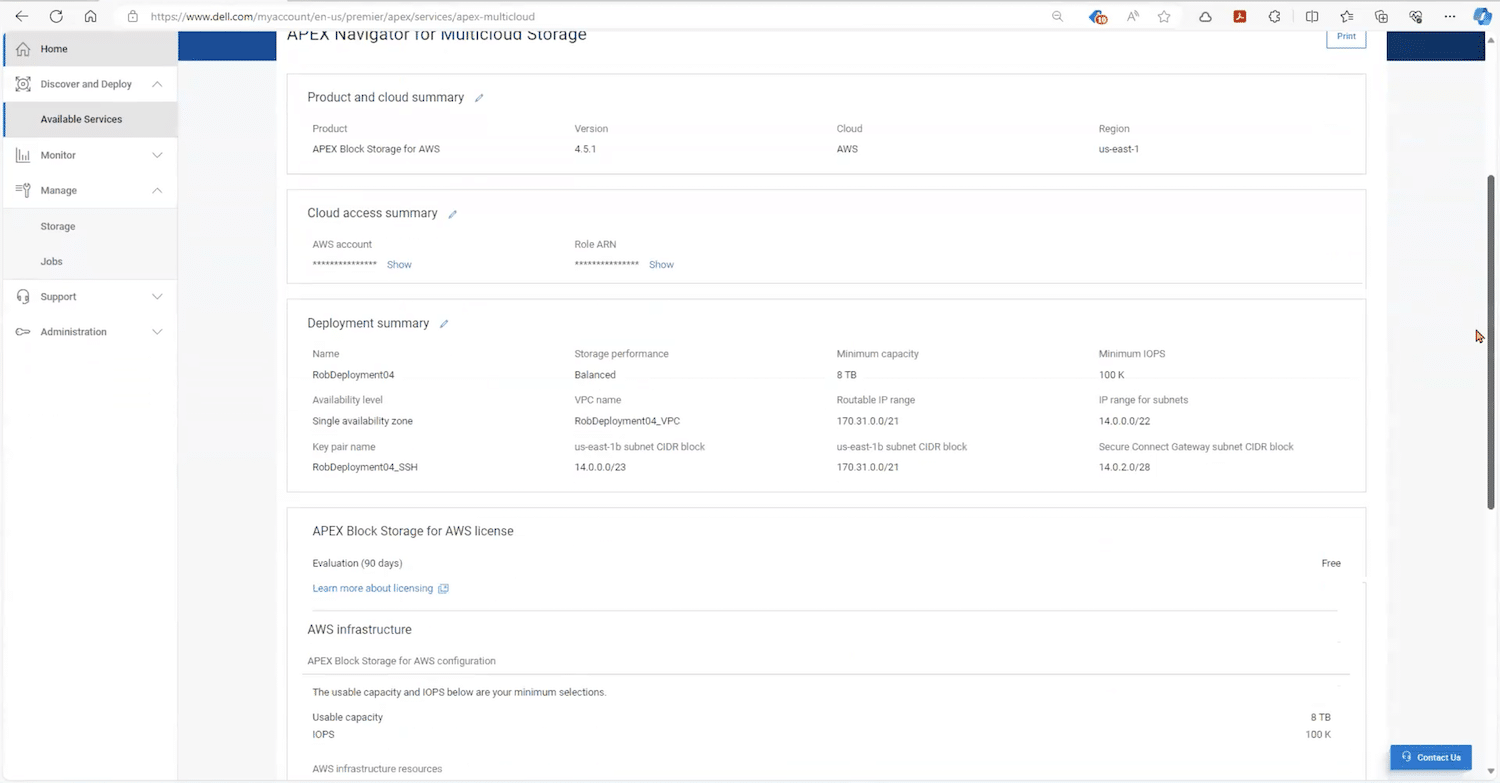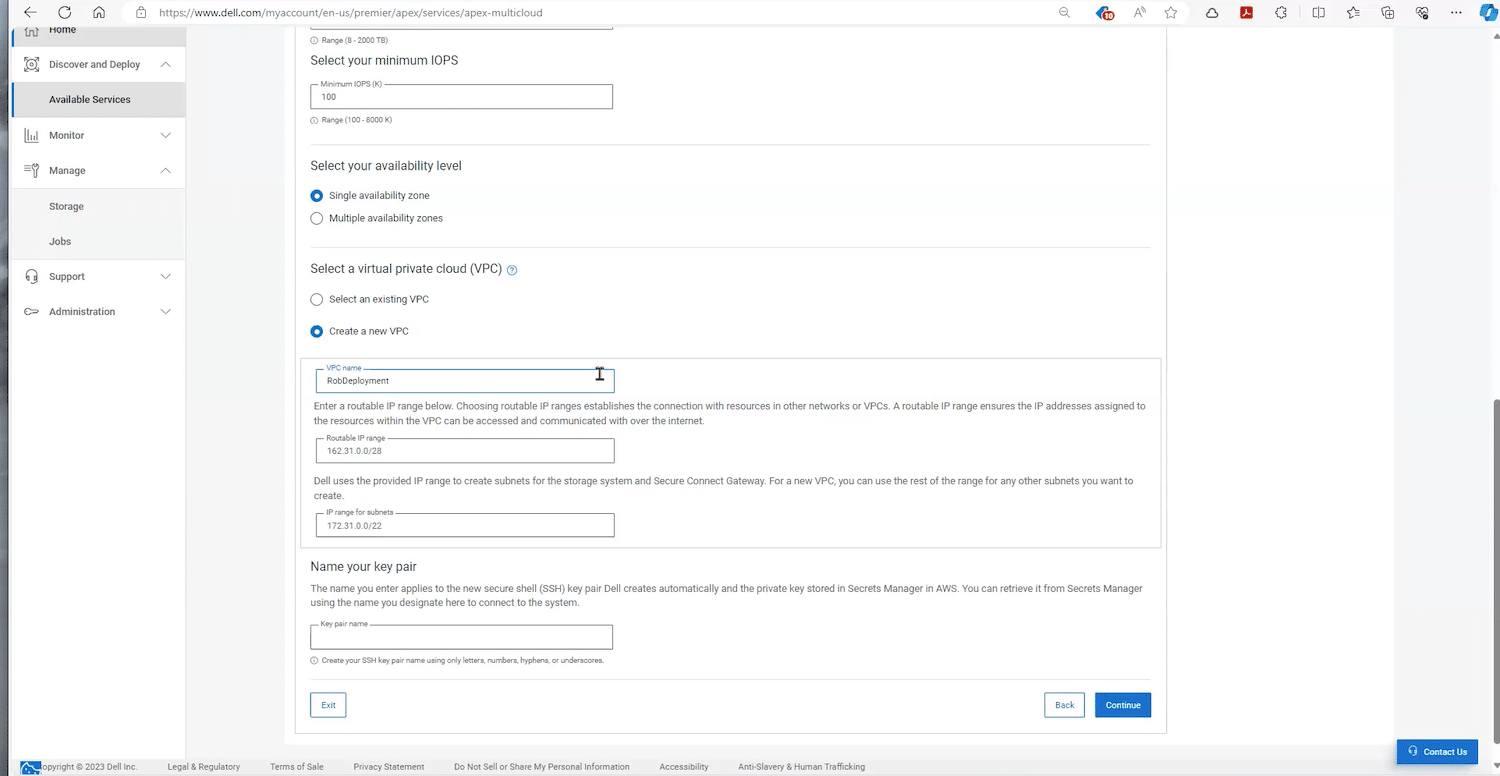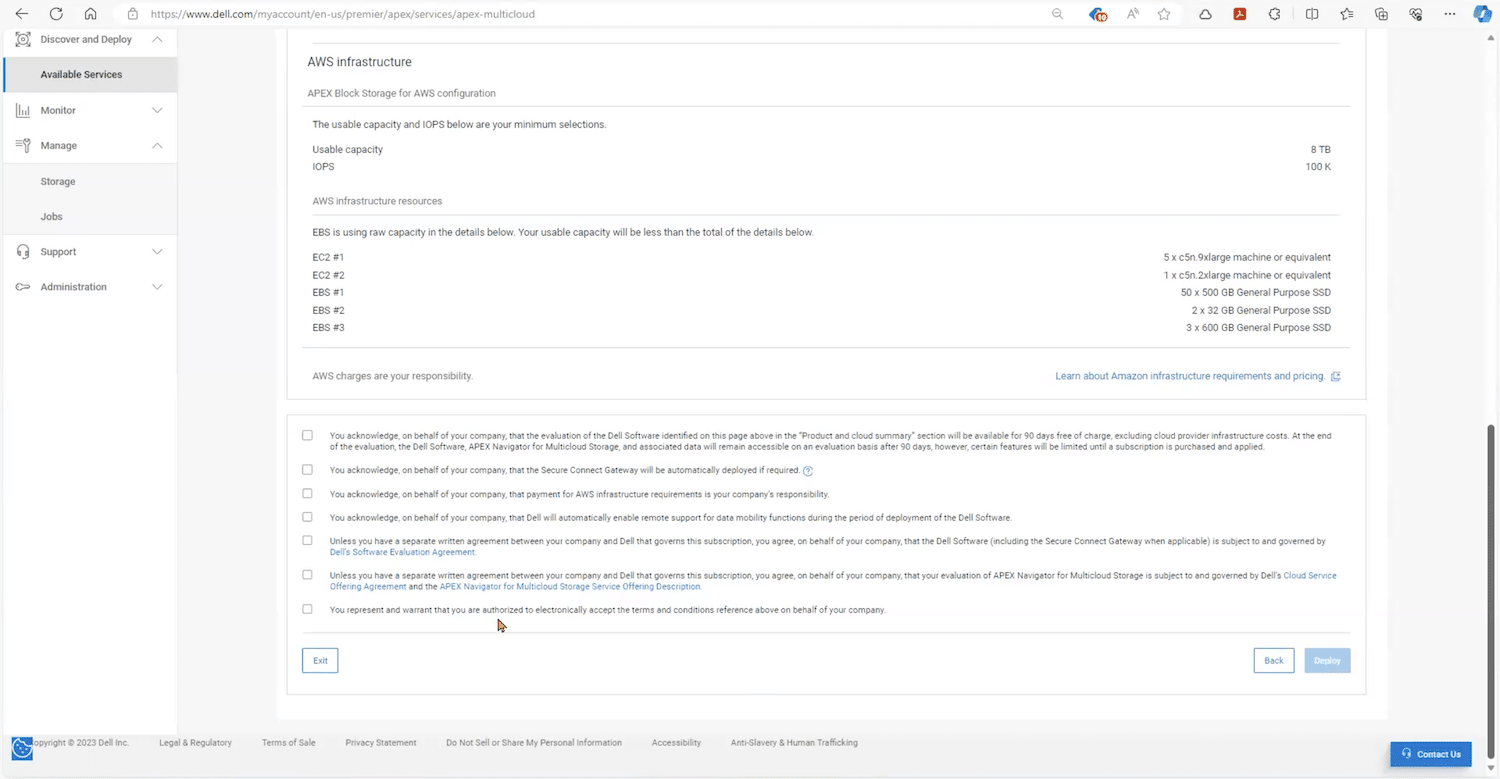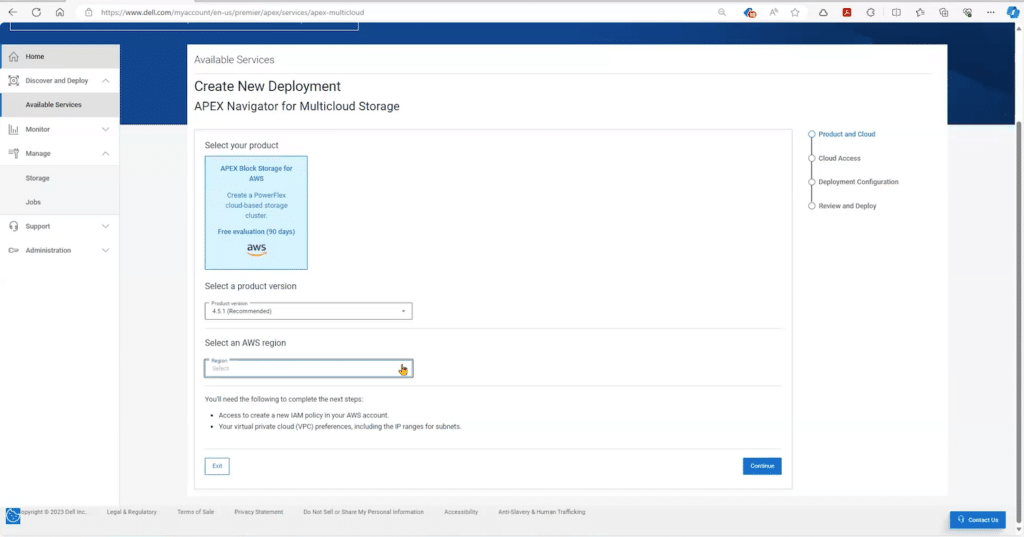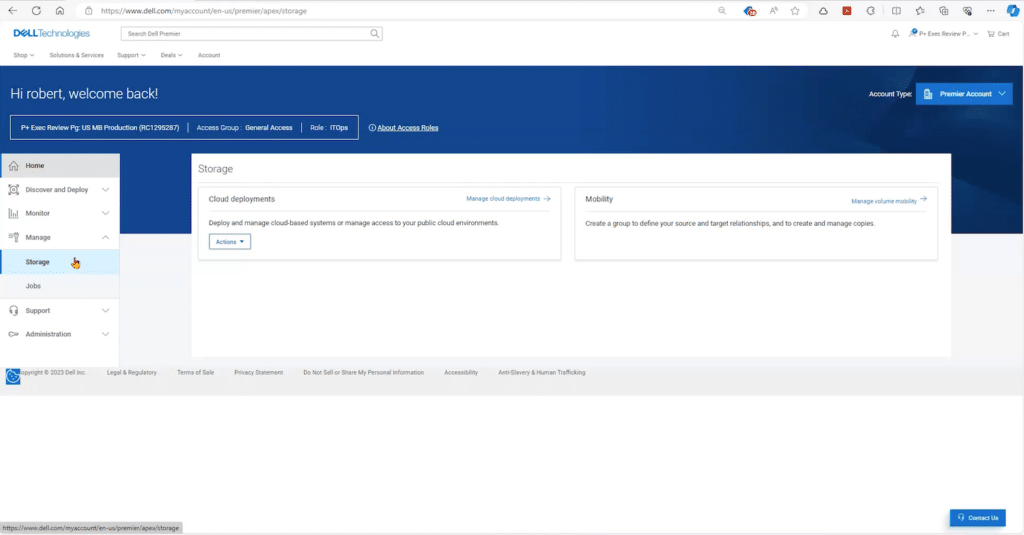Dell APEX Navigator signifies a leap in cloud data management, deployment, and monitoring, offering unique flexibility, efficiency, and integration.
Today’s cloud computing has become ubiquitous, leading many businesses to find effective ways to integrate their current infrastructure with expanding cloud platforms. That’s where Dell Technologies comes in with their solution: Dell APEX Navigator. This solution signifies a leap in cloud data management, deployments, and monitoring, offering unique flexibility, efficiency, and integration. The importance of such integration in today’s tech-dominated landscape cannot be overstated as businesses seek more agile and scalable cloud solutions.
This article delves deep into the intricacies of Dell APEX Navigator, exploring its AWS integration with APEX Block Storage, simplicity in operation, data mobility features, and its targeted approach towards existing Dell customers. It serves as a comprehensive guide for understanding how this solution stands at the confluence of innovation and functionality in cloud computing.
Dell APEX Navigator: Overview
Dell APEX Navigator proves Dell’s commitment to advancing alongside cloud technology. It is a solution designed for businesses to seamlessly manage data across various locations, including public clouds, on-premises, and colocations. Its primary feature is its capability to manage everything in one place, ensuring that data across different platforms is easily accessible and manageable, all from a single pane of glass.
This centralized approach not only simplifies data management but also enhances operational efficiency. Among its many features, the most prominent include multi-cloud data control, simplified operations, and enhanced security protocols—making it an ideal choice for businesses looking to streamline their cloud data management.
Simplicity in Data Management
One of Dell APEX Navigator’s main strengths is its simplicity while managing complex data environments. This simplicity is reflected in its user-friendly interface, automated workflows, and streamlined processes that reduce the technical overhead for IT teams. The platform allows for easy navigation (even in complex multi-cloud environments), making it accessible for users with varying levels of technical expertise.
APEX Navigator for Multicloud Storage serves as a centralized hub for day-to-day management activities using in-context navigation to access additional element managers. Customers can also monitor their storage licenses, health, performance, and capacity deployed in the public cloud. Additionally, customers can click into CloudIQ for a complete information view across their Dell storage landscape. APEX Navigator for Multicloud Storage drives data mobility between on-premises and public cloud Dell storage.
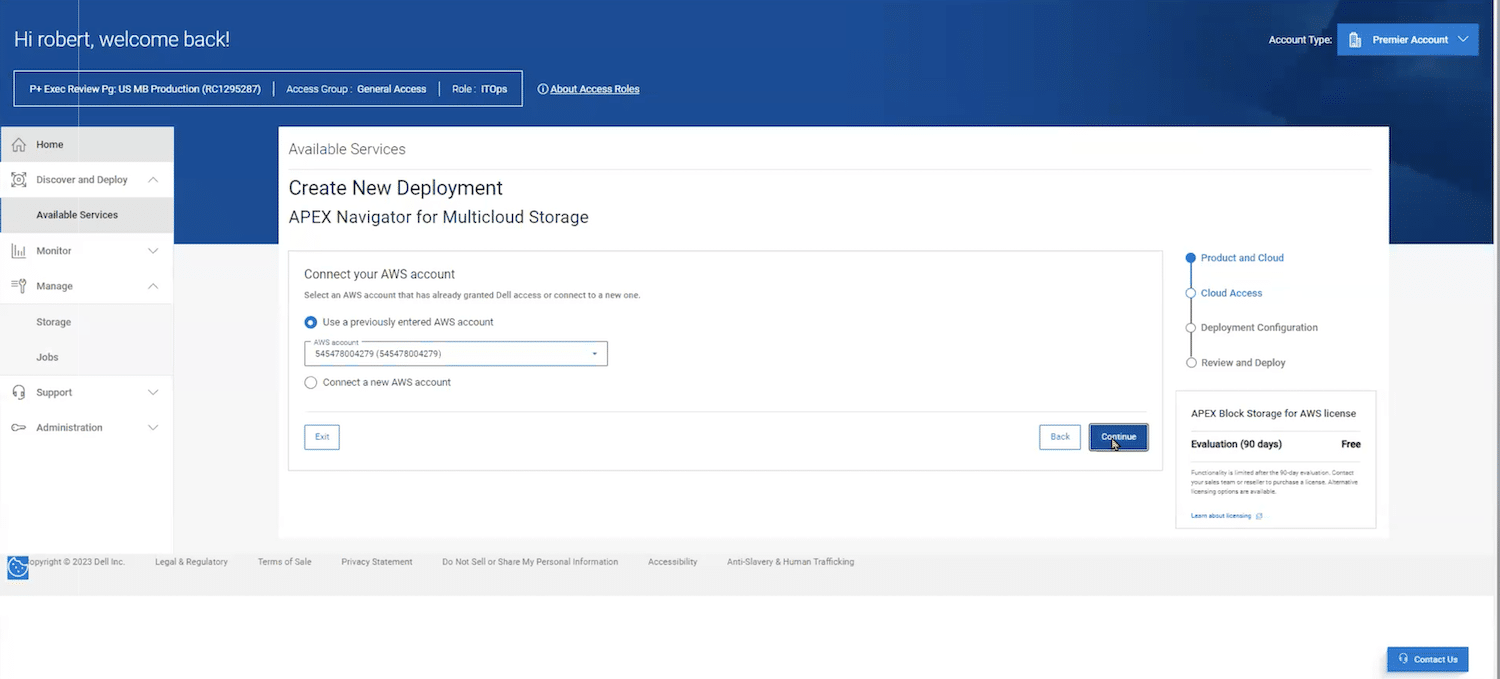
Creating a new AWS deployment is straightforward using APEX Navigator. The options are pretty granular, with the ability to define balanced and performance parameters for storage. The difference between those two options is the underpinning of each in regards to the storage type. Balanced leverages EBS storage, while performance-optimized uses EC2 storage.
APEX Navigator also allows defining capacity, IOPS, and availability level.
Deploying and managing cloud-based systems can be performed through APEX Navigator. The display provides the user with status, capacity, region, and health score.
After wrapping up the storage definitions to fit your needs, APEX Navigator provides a summary in case changes are necessary.
Integration with AWS Block Storage Services
With Dell APEX Navigator, the integration with AWS initially focuses on Block storage services (File and Azure coming later this year). This collaboration allows for efficient data transfer and synchronization, making it ideal for dynamic cloud operations where data fluidity and availability are paramount.
Businesses leveraging AWS through Dell APEX Navigator can expect enhanced data mobility thanks to optimized data transfer processes and storage management. This integration simplifies the complex task of managing large data volumes and ensures that data is available where and when needed, a critical factor in today’s fast-paced business environments.
Based on Dell PowerFlex, APEX Block storage for the public cloud offers scaling capacity, IO performance, and multi-OS/multi-hypervisor compatibility, enabling customers to consolidate all block IO workloads. APEX Block Storage scales up to 512 storage nodes in the cloud or on-premises. APEX Block Storage on AWS can achieve 1M IOPS with sub-millisecond latency with just five storage instances.
To create a new deployment, fill in the appropriate fields with the deployment name, minimum usable capacity, minimum IOPs, and availability zone (single or multiple), and enter the virtual private cloud (existing or new).
Security: SSO, Federated with Third-Party ID Support
Data security is paramount against all other priorities when implementing connectivity between on-premise infrastructure and cloud-hosted data storage. Dell APEX Navigator follows industry best practices and implements encrypted API-first connectivity between systems. However, they also offer Federated Third-Party Identity Provider support if the client uses this method for their Secure Sign On (SSO) authentication methods. Finally, Dell APEX Navigator helps adopt Zero-Trust by including identity and access management services such as the SSO above and Role-Based Access Control (RBAC) for its features and capabilities.
What’s Next for APEX Navigator and Storage: Embracing Azure for Expanded Data Mobility
Dell APEX Navigator will soon integrate with Microsoft Azure to expand its horizon and broaden its data mobility capabilities. This integration is particularly beneficial for organizations that utilize a multi-cloud strategy, combining the strengths of both AWS and Azure. The synergy between Dell APEX Navigator and Azure allows for a more versatile approach to data management, encompassing a more comprehensive range of cloud services and capabilities.
Azure’s diverse offerings, including Azure Blob Storage and Azure File Storage, complement Dell APEX Navigator’s data management capabilities. This integration facilitates storing and retrieving large datasets and ensures optimal management across different cloud environments. The platform’s ability to interact seamlessly with Azure enhances its appeal to a broader audience, particularly those already invested in Microsoft’s cloud ecosystem.
Looking forward, Dell Apex Navigator is set to introduce more features and enhancements that will further strengthen its data mobility capabilities with AWS and Azure. Anticipated developments may include more advanced data synchronization tools, improved data transfer speeds, and heightened security measures for data in transit between these cloud environments. Such advancements will be crucial for businesses leveraging cloud computing for data-intensive applications.
APEX Navigator for Kubernetes
Dell APEX Navigator for Kubernetes (K8s) (COMING SOON!) is intended to simplify storage management for K8s drastically. Like all the other systems, it will offer a common resource management interface. With Dell APEX Navigator, storage admins and DevOps team members can quickly deploy and manage Container Storage Modules at scale across their entire K8s landscape. This gives them access to advanced data services such as application mobility, replication, etc. As a result, enterprises can streamline K8s persistence management, empower their DevOps teams, and govern and protect across environments.
Dell’s Container Storage Modules are also integrated into the Dell APEX Navigator for K8s UX, delivering advanced data services that allow organizations to quickly adopt cloud-native workloads, improve productivity, and scale up operations.
(Fun Fact: The abbreviation “K8s” is called a numeronym because it contracts a word and replaces the letters with a numerical digit, signifying the number of characters by which it was shortened!)
Conclusion
Dell Apex Navigator emerges as a pivotal solution in cloud computing, offering unparalleled flexibility, efficiency, and integration with major cloud services like AWS. Its focus on simplicity, data mobility, and consistent operations, both in the cloud and on-premises, makes it an indispensable tool for businesses navigating the complex landscape of modern IT infrastructure. For existing Dell customers, it represents a natural and advantageous progression into the cloud era, while its broader appeal lies in its ability to simplify and unify multi-cloud environments. As we look to the future, Dell APEX Navigator is not just a product but a beacon guiding the way toward more integrated, efficient, and flexible cloud computing solutions.
This report is sponsored by Dell Technologies. All views and opinions expressed in this report are based on our unbiased view of the product(s) under consideration.
Engage with StorageReview
Newsletter | YouTube | Podcast iTunes/Spotify | Instagram | Twitter | TikTok | RSS Feed

